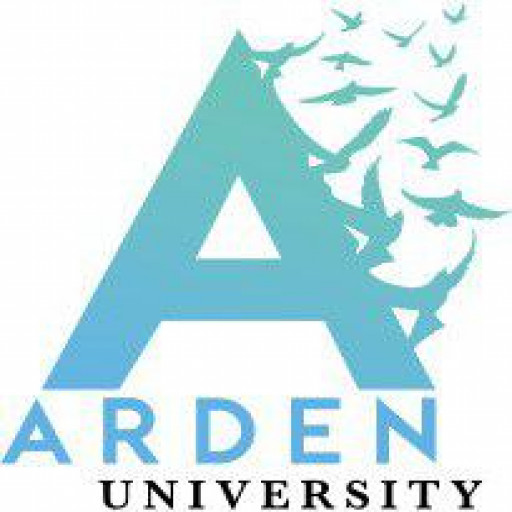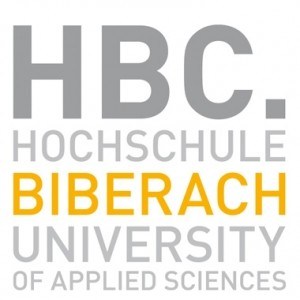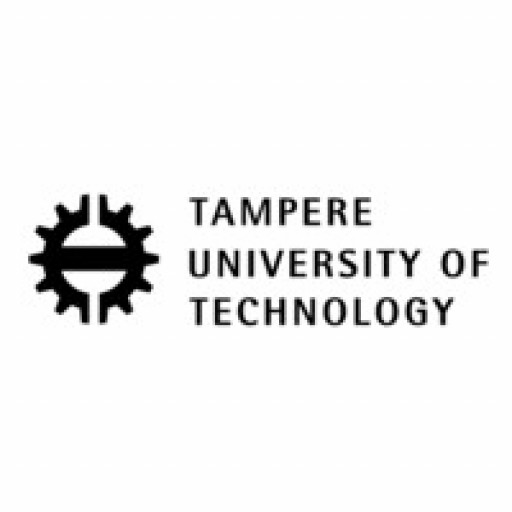Photos of university / #johnshopkinsu
The Master of Science in Engineering Management at Johns Hopkins University is a rigorous and comprehensive program designed to prepare engineering professionals to excel in leadership and management roles within technical industries. This interdisciplinary program combines the fundamentals of engineering with advanced management skills, enabling graduates to effectively lead projects, optimize operations, and drive innovation in dynamic technical environments. The curriculum is carefully structured to cover a broad spectrum of topics, including project management, financial analysis, data analytics, organizational behavior, and strategic decision-making, all tailored to the unique challenges faced by engineering firms and technology-driven organizations. Students in this program benefit from flexible online coursework, allowing them to balance their professional responsibilities with their academic pursuits. The program also emphasizes practical application through case studies, team projects, and real-world problem-solving exercises that foster critical thinking and effective communication. Faculty members are experts in their fields, bringing extensive industry experience and scholarly insight to the classroom. Graduates of the Engineering Management program at Johns Hopkins are well-equipped to advance into leadership positions, contribute to technological innovation, and implement effective management strategies in sectors such as manufacturing, information technology, aerospace, and more. With a strong emphasis on ethical leadership and sustainability, the program aims to cultivate not only technically proficient managers but also responsible global citizens committed to positive societal impact. Whether seeking career advancement or transitioning into management roles, students gain the skills, knowledge, and confidence necessary to succeed in the complex and fast-paced world of engineering and technology management.
Students in the MSEM program will take ten courses to fulfill degree requirements, with the following guidelines:
- Five advanced courses in the engineering/technical concentration
- 3 full-fall semester management courses, a full spring semester MSEM Seminar courses and 6 half- semester courses.
- No grade lower than C may be applied to the program
- Courses must be at the 400-level or higher
- Departments sponsoring technical concentrations may impose stricter requirements for course work within the concentration
At the discretion of the student’s advisors, an MSEM student may be permitted to double-count up to two JHU courses (one for the technical concentration and one for the management concentration) or apply undergraduate or graduate courses taken at JHU or elsewhere but not applied to a degree, in accordance with conditions in the WSE Policy on Double-Counting Courses.
Advising
MSEM students will receive advising on the engineering/technical concentration from a designated faculty member affiliated with that concentration. MSEM students will be advised regarding the management concentration by members of the Center for Leadership Education faculty.
Faculty
Faculty members teaching the technical concentration courses are listed in their respective engineering departments elsewhere in this catalog. Faculty members teaching the management concentration courses are listed in the Center for Leadership Education section of this catalog.
Management Concentration
The Center for Leadership Education has constructed a five-course program tailored to the needs of future engineering managers. MSEM students will participate in a cohort program, which begins each fall, where all students in an entering class will take the following five management courses together:
| EN.662.611 | Strategies: Accounting & Finance (fall) | 3.00 |
| EN.662.651 | (spring) | |
| EN.662.642 | (spring) | |
| EN.662.692 | Strategies for Innovation & Growth (fall) | 3.00 |
| EN.662.632 Business Law and Intellectual Property | ||
In addition, all MSEM students are required to attend the MSEM Seminar (EN.662.811 M.S. in Engineering Management Seminar/EN.662.812 M.S. in Engineering Management (MSEM) Seminar) course while enrolled in the program. This will meet weekly and addresses three important content areas: Innovation and design thinking; personal skills and development especially in the communication arena; and talks with practicing engineering managers. The Engineering Management program reserves the right to change the list of eligible courses at its discretion.
Internship Option
MSEM Course # EN.662.802: Engineering Management Internship Assessment
This course involves the assessment of a student's internship experience via a report and oral presentation. The questions and general format of the report and presentation will be provided by the instructor. The report and presentation will be evaluated by the instructor and both must be approved to obtain credit for this course. One full course counting toward graduation. Smedick (Summer semester)
Technical Concentrations
In addition to fulfilling the management concentration requirements, MSEM students must complete the requirements for one of fifteen technical concentrations. These are:
- Biomaterials
- Chemical & Biomolecular Engineering (pending finalized MHEC recognition- please contact Angela Ruddle for more information regarding concentration requirements and status)
- Civil Engineering
- Communications Science
- Computer Science
- Fluid Mechanics
- Materials Science and Engineering
- Mechanical Engineering
- Mechanics and Materials
- Nano-Biotechnology
- Nanomaterials and Nanotechnology
- Operations Research
- Probability and Statistics
- Smart Product and Device Design
- Environmental Systems Analysis, Economics and Public Policy
Biomaterials
(Sponsored by the Department of Materials Science & Engineering)
Prerequisites
- UG calculus, chemistry, biology, physics and introductory biomaterials course equivalent to EN.510.316 Biomaterials I
| Required Courses (3) | ||
| EN.510.606 | Polymer Chemistry & Biology | 3.00 |
| EN.510.607 | Biomaterials II: Host response and biomaterials applications | 3.00 |
| EN.510.621 | Biomolecular Materials I - Soluble Proteins and Amphiphiles | 3.00 |
Substitutions for required courses can be made at the advisor’s discretion.
Electives (2)
- Electives should be related to Materials Science and Engineering and must be approved by the DMSE graduate committee
- See list of pre-approved elective courses or courses off list by petition
List of Pre-approved Electives
| EN.510.400 | Introduction to Ceramics | 3.00 |
| EN.510.403 | Materials Characterization | 3.00 |
| EN.510.405 | Materials Science of Energy Technologies | 3.00 |
| EN.510.422 | Micro and Nano Structured Materials & Devices | 3.00 |
| EN.510.426 | Biomolecular Materials I - Soluble Proteins and Amphiphiles | 3.00 |
| EN.510.428 | Material Science Laboratory I | 3.00 |
| EN.510.429 | Materials Science Laboratory II | 3.00 |
| EN.510.430 | Biomaterials Lab | 3.00 |
| EN.510.456 | Introduction to Surface Science | 3.00 |
| EN.510.604 | Mechanical Properties of Materials | 3.00 |
| EN.510.605 | Electrical, Optical and Magnetic Properties of Materials | 3.00 |
| EN.510.606 | Polymer Chemistry & Biology | 3.00 |
| EN.510.607 | Biomaterials II: Host response and biomaterials applications | 3.00 |
| EN.510.608 | Electrochemistry | 3.00 |
| EN.510.611 | Solid State Physics | 3.00 |
| EN.510.612 | Solid State Physics | 3.00 |
| EN.510.619 | ||
| EN.510.624 | X-Ray Scattering, Diffraction and Imaging | 3.00 |
| EN.510.657 | Materials Science of Thin Films | 3.00 |
Courses not on this list can be used at the advisor’s discretion.
Civil Engineering
(Sponsored by the Department of Civil Engineering)
The Civil Engineering concentration for the Master of Science in Engineering Management consists of five courses, with the following guidelines:
| Required Courses | ||
| EN.560.730 | Finite Element Methods | 3.00 |
Substitutions for required courses can be made at the advisor’s discretion.
Elective Courses
- Any two courses from 560.6xx or above, or 565.6xx or above (excluding seminar)
Communications Science
(Sponsored by the Department of Electrical & Computer Engineering)
Students may select any combination of 5 courses in communications and related fields from the list below.
| EN.520.401 | Basic Communication | 3.00 |
| EN.520.410 | ||
| EN.520.435 | Digital Signal Processing | 3.00 |
| EN.520.447 | Information Theory | 3.00 |
| EN.520.465 | Digital Communications I | 3.00 |
| EN.520.646 | Wavelets & Filter Banks | 3.00 |
| EN.520.651 | Random Signal Analysis | 4.00 |
| EN.520.652 | Extraction of Signals from Noise | 3.00 |
| EN.520.666 | Information Extraction | 3.00 |
| EN.520.735 | Sensory Information Processing | 3.00 |
Substitutions for required courses can be made at the advisor’s discretion.
Computer Science
(Sponsored by the Department of Computer Science)
Curricular Requirements
- Any five regular graduate courses approved by the advisor, 400-level or higher, from the Department of Computer Science, not including the senior thesis. Three 1-credit graduate courses may be combined to constitute one regular graduate course.
Fluid Mechanics
(Sponsored by the Department of Mechanical Engineering)
Any five courses in Fluid Mechanics or closely related discipline, at the 400-level or higher, as approved by the Faculty advisor. At least two of the required technical courses must be at the 600-level or higher.
Materials Science & Engineering
(Sponsored by the Department of Materials Science & Engineering)
Prerequisites
- UG calculus, chemistry and physics; biology is recommended
| Required Courses (1) | ||
| EN.510.601 | Structure of Materials | 3.00 |
Substitutions for required courses can be made at the advisor’s discretion.
Electives (4)
- See list of pre-approved elective courses or courses off list by petition
Recommended Structure
- Electives:
| List of Pre-approved Electives | ||
| EN.510.400 | Introduction to Ceramics | 3.00 |
| EN.510.403 | Materials Characterization | 3.00 |
| EN.510.405 | Materials Science of Energy Technologies | 3.00 |
| EN.510.422 | Micro and Nano Structured Materials & Devices | 3.00 |
| EN.510.426 | Biomolecular Materials I - Soluble Proteins and Amphiphiles | 3.00 |
| EN.510.428 | Material Science Laboratory I | 3.00 |
| EN.510.429 | Materials Science Laboratory II | 3.00 |
| EN.510.430 | Biomaterials Lab | 3.00 |
| EN.510.456 | Introduction to Surface Science | 3.00 |
| EN.510.604 | Mechanical Properties of Materials | 3.00 |
| EN.510.605 | Electrical, Optical and Magnetic Properties of Materials | 3.00 |
| EN.510.606 | Polymer Chemistry & Biology | 3.00 |
| EN.510.607 | Biomaterials II: Host response and biomaterials applications | 3.00 |
| EN.510.608 | Electrochemistry | 3.00 |
| EN.510.611 | Solid State Physics | 3.00 |
| EN.510.612 | Solid State Physics | 3.00 |
| EN.510.619 | ||
| EN.510.624 | X-Ray Scattering, Diffraction and Imaging | 3.00 |
| EN.510.657 | Materials Science of Thin Films | 3.00 |
Alternative selections can be made at the advisor’s discretion.
Mechanical Engineering
(Sponsored by the Department of Mechanical Engineering)
Required Courses
Any five courses in Mechanical Engineering or closely related discipline at the 400-level or higher, as approved by the Faculty advisor. At least two of the required technical courses must be at the 600-level or higher.
Alternative selections can be made at the advisor’s discretion.
Mechanics and Materials
(Sponsored jointly by the Department of Mechanical Engineering and the Department of Materials Science & Engineering)
| Required Courses | ||
| EN.510.601 | Structure of Materials | 3.00 |
| EN.510.604 | Mechanical Properties of Materials | 3.00 |
Substitutions for required courses can be made at the advisor’s discretion.
Elective Courses
Any two (2) of the following courses, approved by the faculty advisor:
| EN.510.403 | Materials Characterization | 3.00 |
| EN.510.428 | Material Science Laboratory I | 3.00 |
| EN.530.405 | Mechanics of Advanced Engineering Structures | 3.00 |
| EN.530.414 | Computer-Aided Design | 3.00 |
| EN.530.416 | ||
| EN.530.418 | Aerospace Structures & Materials | 3.00 |
| EN.530.454 | Manufacturing Engineering | 3.00 |
| EN.510.602 | Thermodynamics of Materials | 3.00 |
| EN.510.603 | Phase Transformations of Materials | 3.00 |
| EN.530.612 | Computational Solid Mechanics | 3.00 |
Alternative selections can be made at the advisor’s discretion.
Nano-Biotechnology
(Sponsored by the Department of Materials Science & Engineering)
Prerequisites
- UG calculus, chemistry, biology, physics and introductory biomaterials course equivalent to EN.510.316
| Required Courses (3) | ||
| EN.510.422 | Micro and Nano Structured Materials & Devices | 3.00 |
| EN.510.607 | Biomaterials II: Host response and biomaterials applications (PR: EN.510.316 or permission) | 3.00 |
| EN.670.619 | Fundamental Physics and Chemistry of Nanomaterials | 3.00 |
Substitutions for required courses can be made at the advisor’s discretion.
Electives (2)
- Electives should be related to Materials Science and Engineering and must be approved by the DMSE graduate committee
- See list of pre-approved elective courses or courses off list by petition
Recommended Structure
| Fall | Credits | Spring | Credits | ||
|---|---|---|---|---|---|
| EN.510.422 | Micro and Nano Structured Materials Devices | 3 | EN.510.607 | Biomaterials II: Host response and biomaterials applications | 3.00 |
| Electives: suggest one | Electives: suggest one | ||||
| 3 | 3 | ||||
| Total Credits: 6 | |||||
List of Pre-approved Electives
| EN.510.400 | Introduction to Ceramics | 3.00 |
| EN.510.403 | Materials Characterization | 3.00 |
| EN.510.405 | Materials Science of Energy Technologies | 3.00 |
| EN.510.422 | Micro and Nano Structured Materials & Devices | 3.00 |
| EN.510.426 | Biomolecular Materials I - Soluble Proteins and Amphiphiles | 3.00 |
| EN.510.428 | Material Science Laboratory I | 3.00 |
| EN.510.429 | Materials Science Laboratory II | 3.00 |
| EN.510.430 | Biomaterials Lab | 3.00 |
| EN.510.456 | Introduction to Surface Science | 3.00 |
| EN.510.604 | Mechanical Properties of Materials | 3.00 |
| EN.510.605 | Electrical, Optical and Magnetic Properties of Materials | 3.00 |
| EN.510.606 | Polymer Chemistry & Biology | 3.00 |
| EN.510.607 | Biomaterials II: Host response and biomaterials applications | 3.00 |
| EN.510.608 | Electrochemistry | 3.00 |
| EN.510.611 | Solid State Physics | 3.00 |
| EN.510.612 | Solid State Physics | 3.00 |
| EN.510.619 | ||
| EN.510.624 | X-Ray Scattering, Diffraction and Imaging | 3.00 |
| EN.510.657 | Materials Science of Thin Films | 3.00 |
Alternative selections can be made at the advisor’s discretion.
Nanomaterials and Nanotechnology
(Sponsored by the Department of Materials Science & Engineering)
Prerequisites
- UG calculus, chemistry, and physics
| Required Courses (2) | ||
| EN.510.422 | Micro and Nano Structured Materials & Devices | 3.00 |
| EN.670.619 | Fundamental Physics and Chemistry of Nanomaterials | 3.00 |
Substitutions for required courses can be made at the advisor’s discretion.
Electives (3)
- Electives should be related to Materials Science and Engineering and must be approved by the DMSE graduate committee
- See list of pre-approved elective courses or courses off list by petition
Recommended Structure
| Fall | Credits | Spring | Credits | ||
|---|---|---|---|---|---|
| EN.510.422 | Micro and Nano Structured Materials Devices (Required) | 3 | Required: none | ||
| EN.670.619 | Fundamental Physics and Chemistry of Nanomaterials | 3.00 | Electives in Spring: suggest two | ||
| See list of pre-approved elective courses or courses off list by petition | |||||
| 6 | 0 | ||||
| Total Credits: 6 | |||||
List of Pre-approved Electives
| EN.510.400 | Introduction to Ceramics | 3.00 |
| EN.510.403 | Materials Characterization | 3.00 |
| EN.510.405 | Materials Science of Energy Technologies | 3.00 |
| EN.510.422 | Micro and Nano Structured Materials & Devices | 3.00 |
| EN.510.426 | Biomolecular Materials I - Soluble Proteins and Amphiphiles | 3.00 |
| EN.510.428 | Material Science Laboratory I | 3.00 |
| EN.510.429 | Materials Science Laboratory II | 3.00 |
| EN.510.430 | Biomaterials Lab | 3.00 |
| EN.510.456 | Introduction to Surface Science | 3.00 |
| EN.510.604 | Mechanical Properties of Materials | 3.00 |
| EN.510.605 | Electrical, Optical and Magnetic Properties of Materials | 3.00 |
| EN.510.606 | Polymer Chemistry & Biology | 3.00 |
| EN.510.607 | Biomaterials II: Host response and biomaterials applications | 3.00 |
| EN.510.608 | Electrochemistry | 3.00 |
| EN.510.611 | Solid State Physics | 3.00 |
| EN.510.612 | Solid State Physics | 3.00 |
| EN.510.619 | ||
| EN.510.624 | X-Ray Scattering, Diffraction and Imaging | 3.00 |
| EN.510.657 | Materials Science of Thin Films | 3.00 |
Operations Research
(Sponsored by the Department of Applied Mathematics & Statistics)
Prerequisites
Calculus-based background in Probability and Statistics. Students wishing to strengthen their background in this area may enroll in EN.550.420 Introduction to Probability and/or EN.550.430 Introduction to Statistics, but these courses may not be used in fulfillment of this concentration’s requirements.
| Required Courses (3) | ||
| EN.570.495 | Optimization Foundations for Environmental Engineering and Policy Design | 3 |
| or EN.550.661 | Foundations of Optimization | |
| EN.570.497 | Risk and Decision Analysis | 3 |
| EN.570.608 | 0-4 | |
| or EN.550.400 | Mathematical Modeling and Consulting | |
Substitutions for required courses can be made at the advisor’s discretion
Elective Courses (2)
Any two courses from the following list, or a substitution as approved by the student’s concentration advisor. As course offerings vary over time, an updated list of acceptable courses will be maintained on the MSEM program website.
| EN.570.493 | Economic Foundations for Environmental Engineering and Policy Design | 3.00 |
| EN.570.496 | Urban and Environmental Systems | 3.00 |
| EN.550.662 | Optimization Algorithms | 3.00 |
| EN.550.426 | Introduction to Stochastic Processes | 4.00 |
| EN.550.427 | Stochastic Processes and Applications to Finance | 4.00 |
| EN.550.433 | Monte Carlo Methods | 3.00 |
| EN.550.463 | Network Models in Operations Research | 4.00 |
Alternative selections can be made at the advisor’s discretion.
Probability and Statistics
(Sponsored by the Department of Applied Mathematics & Statistics)
Admissions Requirements
- One upper-division undergraduate course in probability (equivalent to EN.550.420 Introduction to Probability)
- One upper-division undergraduate course in mathematical statistics (equivalent to EN.550.430 Introduction to Statistics)
Curricular Requirements
Any five (5) of the following courses, approved by the faculty advisor:
| EN.550.413 | Applied Statistics and Data Analysis | 4.00 |
| EN.550.426 | Introduction to Stochastic Processes | 4.00 |
| EN.550.433 | Monte Carlo Methods | 3.00 |
| EN.550.434 | Nonparametric Statistics | 3.00 |
| EN.550.436 | Data Mining | 4.00 |
| EN.550.439 | Time Series Analysis | 3.00 |
| EN.550.620 | Probability Theory I | 4.00 |
| EN.550.630 | Statistical Theory | 4.00 |
| EN.550.631 | Statistical Theory II | 3.00 |
| EN.550.635 | Topics in Bioinformatics | 4.00 |
| EN.550.730 |
Additional Requirements
- An overall GPA of 3.0 must be maintained in courses used to meet the program’s technical requirements. At most two course grades of C or C+ are allowed to be used, and the rest of the course grades must be B- or better.
- Students must satisfy the department’s graduate student computing requirement.
- With advisor’s approval, one non-departmental course containing appropriate mathematical or statistical content can be counted to satisfy the five course requirement.
Smart Product and Device Design
(Sponsored jointly by the Department of Mechanical Engineering and the Department of Electrical & Computer Engineering)
| Required Courses | ||
| EN.530.646 | Robot Devices, Kinematics, Dynamics, and Control | 3.00 |
| EN.530.414 | Computer-Aided Design | 3.00 |
| EN.520.491 | CAD Design of Digital VLSI Systems I (Juniors/Seniors) | 3.00 |
| EN.530.421 | Mechatronics | 3.00 |
| EN.520.448 | Electronics Design Lab | 3.00 |
Substitutions for required courses can be made at the advisor’s discretion.
Elective Courses
Any two (2) courses approved by the faculty advisor.
Environmental Systems Analysis, Economics and Public Policy
(Sponsored by the Department of Geography & Environmental Engineering)
Required Courses (3)
At least one course from each of the three following groups:
- Economics (with calculus)—acceptable courses include EN.570.493 Economic Foundations for Environmental Engineering and Policy Design or equivalent. (This requirement may be waived if the student has already had an intermediate microeconomics course accepted by their advisor)
- Mathematics of Decision Making—acceptable courses include EN.570.495 Optimization Foundations for Environmental Engineering and Policy Design and EN.570.497 Risk and Decision Analysis
- Policy—acceptable courses include EN.570.659 and EN.570.607 Energy Policy and Planning Models
Substitutions for required courses can be made at the advisor’s discretion.
Elective Courses (2)
Any of the courses listed in the Mandatory list (see Part A above)
| EN.570.496 | Urban and Environmental Systems | 3.00 |
| EN.570.618 | Multiobjective Programming and Planning | 3.00 |
| EN.570.676 | Stochastic Programming | 3.00 |
Other courses in environmental economics, systems, or policy, as approved by the advisor.
Additional Notes
- All courses must be approved by the student’s advisor.
- All course must be at the 400-level or above.
- Students with a background in quantitatively rigorous economics sufficient for the economics requirement to be waived must still take five (5) courses in this area of concentration.
- No more than one course in environmental engineering may be used to fulfill the area of concentration and only with careful consultation with the student’s advisor. Candidate courses in environmental engineering include:
- EN.570.446 Biological Process of Wastewater Treatment, EN.570.490 Solid Waste Engineering and Management,EN.570.491Hazardous Waste Engineering and Management, EN.570.647 Hydrologic Transport in the Environment, EN.570.657 Air Pollution, etc.
- No more than one C may be used toward the degree in this concentration.
- Letters of Recommendation (3),
- GRE,
- TOEFL/IELTS,
- Statement of Purpose,
- Transcripts,
- Resume
The Johns Hopkins University offers multiple options for financing studies in the Engineering Management program, catering to a diverse range of students with varying financial needs. Prospective students are encouraged to explore federal and state financial aid programs, which include grants, loans, and work-study opportunities. The university participates in federal student aid programs, providing access to financial support through the Free Application for Federal Student Aid (FAFSA), which is essential for identifying eligibility for need-based aid. Additionally, Johns Hopkins University offers institutional scholarships and grants dedicated to graduate students, based on academic merit, leadership qualities, and financial need. These scholarships are highly competitive and often require separate application processes, along with supporting documentation such as transcripts and personal statements.
Graduate students can also consider student loan options, including federal Direct Unsubsidized Loans and Graduate PLUS Loans, which help cover tuition fees and living expenses. The university occasionally provides loan repayment assistance programs and competitive interest rates to assist students in managing their debt after graduation. Furthermore, the university has partnerships with private organizations and industry sponsors that may offer scholarships, fellowships, or assistantship positions. These opportunities often involve responsibilities such as research assistance or teaching, which provide both financial support and valuable professional experience.
Additionally, Johns Hopkins encourages students to seek external funding sources, including professional associations, industry-specific grants, and government-funded research grants. Many students leverage these external scholarships to offset educational costs, participate in specialized training, or support research endeavors. The university also advises students to explore the possibility of employer tuition reimbursement programs, especially for those who are working concurrently with their studies. Such programs can significantly reduce the financial burden and facilitate practical learning experiences aligned with professional development.
In summary, financing studies at Johns Hopkins University for the Engineering Management program involves a combination of federal aid, institutional scholarships, private funding, and external grants. The university provides comprehensive guidance and resources to help students identify suitable funding options, navigate application processes, and plan their financial strategy throughout their academic journey. Students are encouraged to start early, maintain good academic standing, and actively seek all available opportunities to finance their education effectively.
The Johns Hopkins University offers a comprehensive program in Engineering Management designed to prepare students for leadership roles at the intersection of engineering, management, and technology. The program emphasizes the development of skills necessary to manage complex engineering projects, lead innovative teams, and implement strategic solutions in dynamic industries. Students engage with core concepts such as project management, systems engineering, decision analysis, and financial management, all tailored to the needs of engineering contexts. The curriculum combines rigorous technical coursework with leadership and management training, fostering a multidisciplinary approach that enables graduates to address both technical challenges and organizational issues effectively.
The program is suitable for engineers seeking to advance their careers into managerial positions, as well as for professionals aiming to bridge the gap between technical expertise and executive responsibilities. Courses are often delivered in flexible formats, including online and hybrid modes, to accommodate working professionals. The Johns Hopkins Engineering Management program also emphasizes real-world application through case studies, team projects, and industry collaborations, allowing students to apply learned concepts to practical scenarios.
Students benefit from access to Johns Hopkins’ extensive research facilities, faculty expertise, and a vibrant professional community. The program graduates are equipped with competencies in leadership, innovation management, risk analysis, and technological entrepreneurship, positioning them for success in various sectors such as manufacturing, consulting, healthcare, and information technology. Upon completion, students earn a Master of Science in Engineering Management, which is recognized for its rigorous academic standards and practical relevance, aligning with industry needs for technically proficient and management-savvy professionals.
The university continually updates and enhances its curriculum to reflect current trends and future developments in engineering and management practices. Networking opportunities, career services, and industry partnerships further support students' professional advancement. Overall, the Engineering Management program at Johns Hopkins University aims to cultivate strategic thinkers and effective leaders capable of driving technological progress and organizational success in a rapidly evolving global environment.









